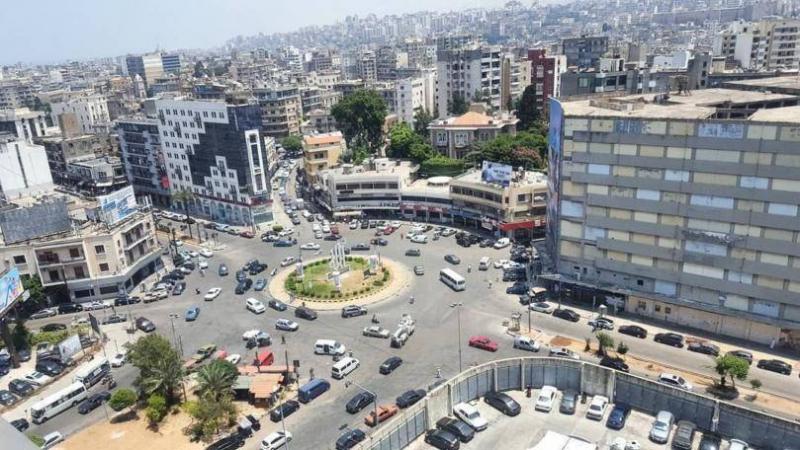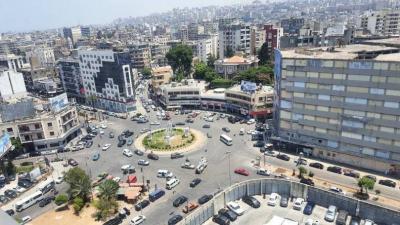"What is happening in the city of Tripoli is more dangerous than it appears in the daily life scenes on the ground." With these words, an informed source summarizes the current reality in Tripoli, referencing a series of events that have occurred in recent weeks, particularly focusing on the issue of illegal immigration that raises numerous humanitarian and security questions. The latest attempts to "break" the people of Tripoli involve depriving them of drinking and daily-use water under the pretext of not providing power to the pumps of the North Lebanon Water Establishment. However, some assert that there is a deliberate "thirst-inducing" campaign with a decision to "educate the people of Tripoli" by instructing the Minister of Energy to completely halt electricity supply to the North Lebanon Water Establishment. "This is not surprising from those who practice vindictive and deprivation policies against anyone who opposes the policies of the regime."
Observers of the situation there have confirmed to "Al-Markazia" that the water crisis has been ongoing for over a month, but it peaked last week. Many attempts have been put on the table for solutions, the latest being the Prime Minister and son of the afflicted city, Najib Mikati's efforts to secure diesel fuel from the Higher Relief Committee to operate the private generators at the North Lebanon Water Establishment. With tearful sarcasm, one individual deprived of drinking water for about a week commented, "It's good that Mikati managed to contact the Director of the Higher Relief Committee, especially since it is affiliated with the Council of Ministers, as reaching the Minister of Energy is nearly impossible. Nevertheless, we haven't even heard the sound of water in the tanks yet!"
"It is no longer hidden from anyone that the wealthy and affluent in Tripoli have exploited their positions to increase their wealth rather than solving the city's problems," says former MP Mesbah Ahdab to "Al-Markazia," emphasizing that the fragile security situation in Tripoli is evident even to the security agencies, which are aware of the locations of extremist cells. Some agencies, by political decisions, are financing these groups and providing them with cover. This is evident as several radical clerics who incited violence against the army and fired upon its personnel enjoy personal security protection, while I, as a former MP for three terms and the former French consul, am denied security personnel for protection. More so, there are security scenarios being plotted between some security agencies and extremists who act according to their instructions under the threat of imprisonment if they do not carry out the orders."
For Ahdab, this discriminatory treatment creates a national imbalance, particularly as it relies on punishing individuals and the Sunni component in the fight against extremism. "It is no secret that there are around 50 people from the city who form gangs, each comprising between 50 and 250 fighters, moving according to the instructions of certain security agencies." Ahdab concludes with a question for the sovereignty-minded, independents, and reformists in the city and the Parliament: "What are you doing for a city that has become like fire under ash? The solution? It is either through citizenship and acting according to texts rather than customs or facing a new reality that threatens the Sunni component... a type of necessity has arisen."
A new war, of a different kind, is facing the city of Tripoli with primitive yet deadly weapons: death boats. The result is a systematic demographic depletion. The plan began with the decision to allow Iraqis to enter Lebanon without visas, as those arriving by plane are members of the Popular Mobilization Forces affiliated with Hezbollah. Writer and expert on Islamic movements Ahmed Al-Ayoubi notes that several members of the Popular Mobilization Forces have entered the city and are present in the port area, Abu Samra, and with the knowledge of the security agencies. Some have also reached Minieh and Akkar. "Certainly, they did not enter the city for tourist purposes, even if the security agencies still deal with them under this umbrella. Perhaps they are waiting for these individuals to complete their activities for appropriate measures to be taken."
The alarming scene that Al-Ayoubi observes represents the demographic emptying of the city through illegal immigration. In this context, he reveals that migration boats depart daily from four points: one near the Qalamoun area, Minieh, the fishermen's port in Al-Abdeh, and the Al-Arida point, carrying about 200 passengers. Notably, this process occurs amid the marketing operations promoted by "heavenly" networks that deceive escapees into believing they are moving to a dignified life, providing guarantees for themselves and their children, ultimately resulting in either drowning or living in refugee camps in Greece under harsh conditions, or returning to square one in their home city after having sold their land, homes, and gold.
What Al-Ayoubi fears is based on field facts indicating that numbers of the Popular Mobilization Forces are entering the city alongside the state’s insistence, which is under Hezbollah’s control, to return Syrian refugees to their country. He states, "We are, of course, in favor of the return of Syrian refugees to their homeland, but the timing, in parallel with the entrance of the Popular Mobilization Forces and the systematic demographic depletion in Tripoli, raises numerous questions. Notably, the Syrian regime is working in coordination with some state officials to program the repatriation operation so that it is limited to impoverished families to work 'in servitude' under the regime’s command. The wealthy and significant businessmen are not accounted for on the repatriation lists, as the regime benefits monthly from the 'taxes' collected from them by a designated collector from the Syrian embassy in Lebanon, which range from 200 to 400 dollars monthly. Most are owners of "one dollar" shops, clothing shops, and food warehouses... What is happening in Tripoli is very alarming," Al-Ayoubi concludes, "and no one knows under what agenda things will proceed, but it does not bode well."




